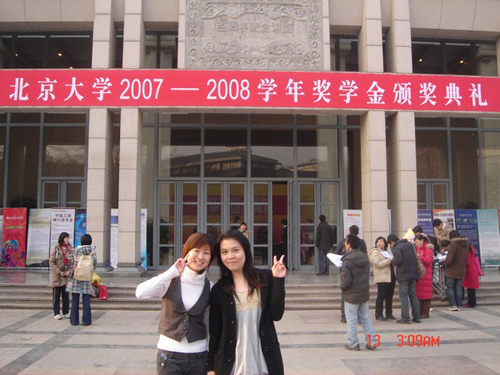
During the course of a visit to Yale University, I had the pleasure of meeting up with Yale student Lun Pei Ng.
Lun Pei is a 1st year graduate student at Yale School of Public Health, concentrating in Epidemiology of Microbial Diseases. She graduated from Peking University Health Science Center as a medical student in 2011. Her interests lie in infectious disease control as well as health care management. As a Hong Kong resident, she is passionate about applying her knowledge in medicine and public health to promote health and wellness in Hong Kong and China after graduation.
I invited Lun Pei, with her China/US education perspectives, to contribute to this week’s edition of גלובל החיפוש לחינוך.
What did you find to be the best parts of your Chinese secondary school in your preparation to pursue your life goals? What would you like to have seen more or less of?
We have a high standard for quantitative subjects like math, physics and chemistry. We go deeply into each question and try to understand the origin of the most important formulas before using it in different settings. These practices help us view problems in a more detailed and logical way, even for those who later pursue a career in arts. יתר על כן, since we go deeply into these subjects and students have the chance to participate in the Nationwide Olympic Games for Science (which requires knowledge comparable to university level), this overall approach is a good platform for students to see if they really have interest in these areas.
עם זאת, I think we could do more to integrate the things we learn into solving practical problems, למשל, using theories in physics and chemistry to explain real life problems and encourage students to think on their own.
כמו כן, I think it would be better if we had fewer requirements of formula memorization, and were allowed to use calculators for complex calculations in tests. בדרך זו, learning would be more efficient and more focus could be put on methods instead of results.
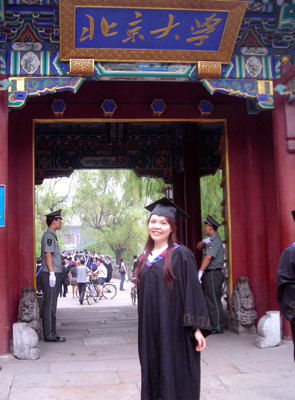
What are your views about standardized testing in high school? How much reliance should be placed upon it to measure the effectiveness of teachers and the capabilities of students?
באופן אישי אני חושב שזה הוגן להשתמש במערכת אחידה כדי לבדוק את כל התלמידים בנושא אחד, במיוחד למדינה עם גדולה כמו אוכלוסייה סין. The tests also serve as a guide for teachers to find where their emphasis should be. Although the result for a single exam may not fully represent your capabilities, השיא לטווח הארוך עוזר להסביר את ההבדל בתלמידים’ יכולות. במונחים של מדידה אפקטיבית של מורים, אני חושב שזה שימושי במידה מסוימת אם אנחנו מסתכלים על המגמה של הכיתה כולה ולא רק בהשוואת הציון הממוצע של מעמדות שונות.
אני חושב שזה חשוב לאוניברסיטאות לקבוע אמות מידה לציוני מבחנים לקבלה. אבל ברגע שאדם עובר benchmark, יותר דגש צריך לשים להערכת ניסיונו של אדם, ואם הוא / היא תהיה בכושר טוב עבור השדה.
בהתבסס על הניסיון האישי שלך, how would you compare your first tier Chinese university experience at Peking University with your first tier university education in the US at Yale University?
Since I was studying medicine at Peking University and changed to Public Health at Yale, it’s not a direct comparison with regard to curricula. But based on my personal experience and information from my classmates, I think the courses at Yale are more practical and applicable to real life, and the curriculum content is updated much faster (e.g. new articles on the effectiveness of HPV vaccine were introduced while we were learning the topic). The homework, case studies and projects require a combination of different skills rather than text memorization, designed to give us the chance to apply theories to practice. כמו כן, this provides a good platform for idea sharing and group assignments. I think my abilities in creative and critical thinking have significantly improved at Yale.
The courses are well connected to each other. More resources are given to the individual, e.g. everyone has an advisor to help answer academic questions and guide his career choices. Professors are very accessible and encourage different ideas from students. The program gives you the basic skills you need in your future work and helps you figure out what your real interest is.
Interaction among different schools and majors is highly encouraged; לדוגמא, there are joint courses provided to Public Health and Law School students, and you can select courses from different schools. One thing that impressed me a lot is the efficient use of different media tools (like email and facebook) in spreading academic news, and you can get almost all the information you need from the Internet.
עם זאת, I think sometimes the atmosphere of classes in the US is too loose and random. Students are encouraged to raise questions but in my opinion this is excessive. Students in China tend to think twice before raising a question. אולי זה נובע מההבדל התרבותי אבל זה ממש עזר לשפר את היעילות של כיתה.
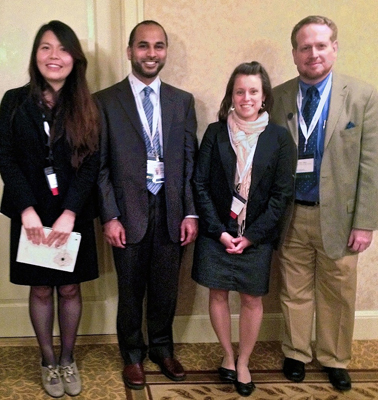
מה אתה חושב ניתן לעשות כדי לטפל ברווחתם הנפשית ופוטנציאל אינטלקטואלי של הפרט טוב יותר, שנראה שסובלים תחת מערכות חינוך בבתי הספר תיכוניות הנוכחיות בסין?
קודם כל, אני חושב שמשרדי קריירה מקצועיים נדרשים בבתי ספר כדי לסייע לתלמידים להבין מה הם האינטרסים האמיתיים שלהם ולספק מידע נוסף על תוכניות רלוונטיות באוניברסיטאות שונות. היו תלמידים מוטיבציה חזקה ללמוד אם הם הבינו את הדברים שהם לומדים היו שימושיים עבור המטרות שלהם בעתיד, ואולי את תהליך הלמידה עצמו יהיה פחות מלחיץ. תלמידי תיכון רבים בסין להגיש בקשה לתכנית באוניברסיטה עם מעט מידע על זה.
כמו כן, it’s important to gradually change the admission evaluation system for higher education in China to have a more comprehensive view of an applicant. This would include taking into account achievements in sports, arts and community service in addition to test scores. עם זאת, the system should be clearly communicated and documented to avoid being abused by some institutes or individuals. It may also be a good idea to put more weight on the test score of subjects related to the future interests of the applicant instead of just looking at the score as a simple result.
What advantages and disadvantages does a US university degree have compared with a Chinese university degree for a Chinese person?
If you plan to stay in the US, a US university degree would help you better adapt to the environment and culture, and also build up your network of contacts.
If you are planning to pursue your career in China, a degree in a Chinese university will give you a deeper understanding of the country’s political, economic, and other systems and a better network of contacts. Since there are increasing opportunities for Chinese students to study in the US today, if the university in US is not well known in China, people might think that you have chosen to study abroad only because you cannot get into a first tier university in China.
I think that in the first one or two years of university, you will gain knowledge in more areas in the US universities and then you can focus on one or two majors. בסין, you will get involved in a specific area at the very beginning. So it may be good for people still searching for their interest to begin their journey in a university with a US like system, but if you already have a clear goal in mind, you may save some time studying in the Chinese universities (למשל, you can save 4-5 years to get a medical degree in China.)

From a broader perspective, does your country’s definition of educational excellence take into account the quality of life of individuals and of society?
I think educational excellence has a different definition and emphasis for the different stages of education. Before university, more focus is placed on a student’s ability to get higher scores, which may lower the quality of an individual’s life since he may need to sacrifice his interests in the arts or social work to make room for study. תוצאת הבדיקה היא הדאגה העיקרית במונחים של מצוינות חינוכיות.
בהשכלה גבוהה, התפיסה הכללית של חינוך מוצלח היא כי מה שאתה לומד יהיה לצייד לך למצוא עבודה טובה או להיכנס לתעשייה רווחית. אני מרגיש שאיכות החיים, הכולל את המאזן בין לשלם הריבית ועבודה של אחד, הוא מושג רחב יותר הקשורות לסטנדרטי של חברה של הצלחה ומצוינות לא רק חינוך. במדינה מתפתחת כמו סין, בקנה מידה מטה לצד השני של תשלום.
The quality of society, לדעתי, must always be considered in educational excellence. If one can use his knowledge and creativity to better serve the community, help address social problems, and improve public health, this should be viewed as representative of an excellent educational system.
עם זאת, China’s definition of educational excellence has changed a lot and more attention is also placed on whether one is enjoying his job rather than just on his productivity. But still there’s a gap in the definition between secondary and higher-level education, which could be a barrier in preparing our future generations to achieve their goals.
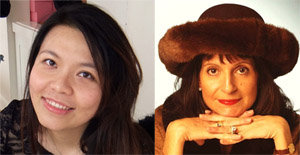
Photos courtesy of Lun Pei Ng.
בגלובל החיפוש לחינוך, להצטרף אליי ולמנהיגי מחשבה מוכרת בעולם כולל סר מייקל ברבר (בריטניה), DR. מיכאל בלוק (ארה"ב), DR. ליאון בוטשטיין (ארה"ב), פרופסור קליי כריסטנסן (ארה"ב), DR. לינדה דרלינג-Hammond (ארה"ב), DR. Madhav אוון (הודו), פרופ 'מיכאל Fullan (קנדה), פרופ 'הווארד גרדנר (ארה"ב), פרופ 'איבון הלמן (הולנד), פרופ 'קריסטין Helstad (נורווגיה), ז'אן הנדריקסון (ארה"ב), פרופ 'רוז Hipkins (ניו זילנד), פרופ 'קורנליה הוגלנד (קנדה), גברת. שנטל קאופמן (בלגיה), DR. Eija Kauppinen (פינלנד), מזכיר המדינה Tapio Kosunen (פינלנד), פרופ 'דומיניק לפונטיין (בלגיה), פרופ 'יו לאודר (בריטניה), פרופ 'בן לוין (קנדה), פרופ 'בארי McGaw (אוסטרליה), שיב נדאר (הודו), פרופ 'R. נטריגין (הודו), DR. PAK NG (סינגפור), DR. דניז אפיפיור (ארה"ב), שרידהר ךאג'גופלן (הודו), DR. דיאן ראוויטש (ארה"ב), סר קן רובינסון (בריטניה), פרופ Pasi Sahlberg (פינלנד), אנדריאס שלייכר (PISA, OECD), DR. אנתוני סלדון (בריטניה), DR. דוד שפר (ארה"ב), DR. קירסטן Immersive Are (נורווגיה), קנצלר סטיבן ספאן (ארה"ב), איב Theze (Lycee Francais ארה"ב), פרופ 'צ'רלס Ungerleider (קנדה), פרופ 'טוני וגנר (ארה"ב), סר דייוויד ווטסון (בריטניה), פרופסור דילן Wiliam (בריטניה), DR. מארק Wormald (בריטניה), פרופ 'תיאו Wubbels (הולנד), פרופ 'מייקל יאנג (בריטניה), ופרופ 'Minxuan ג'אנג (סין) כפי שהם לחקור שאלות חינוך תמונה הגדולות שכל המדינות מתמודדות היום. גלובל החיפוש לחינוך עמוד קהילה
C. M. רובין הוא המחבר שתי סדרות מקוונות רבים קוראות שלהיא קיבלה 2011 הפרס אפטון סינקלר, “גלובל החיפוש לחינוך” ו “איך וויל אנחנו קראו?” היא גם מחברם של שלושה ספרים רבי מכר, כולל אליס בארץ הפלאות Real.
עקוב C. M. רובין בטוויטר: www.twitter.com/@cmrubinworld


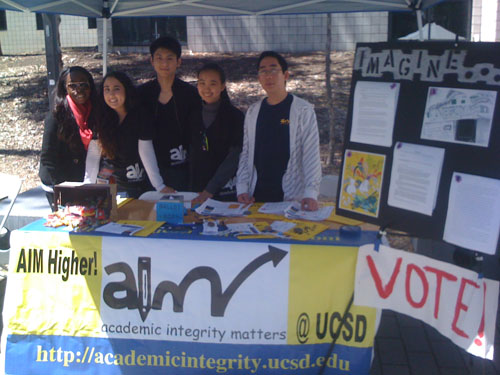
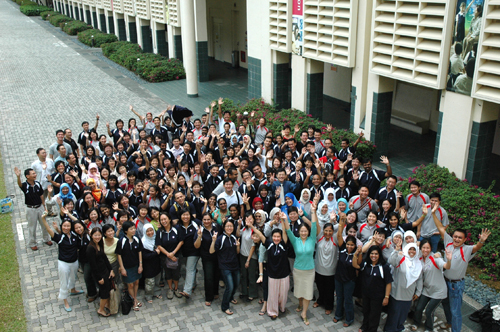
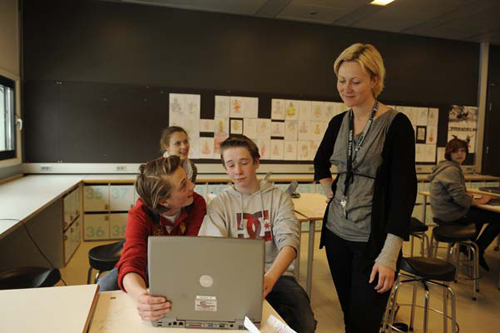
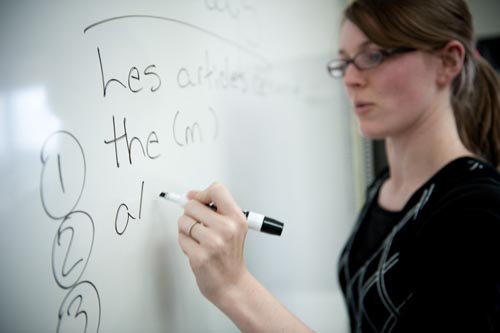
תגובות אחרונות